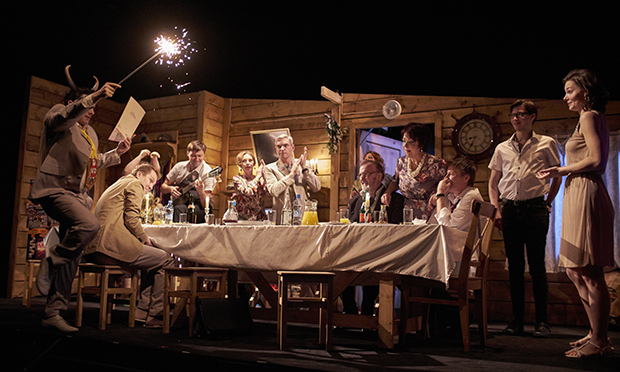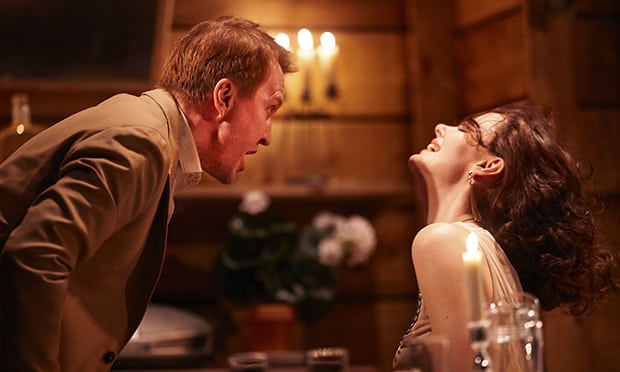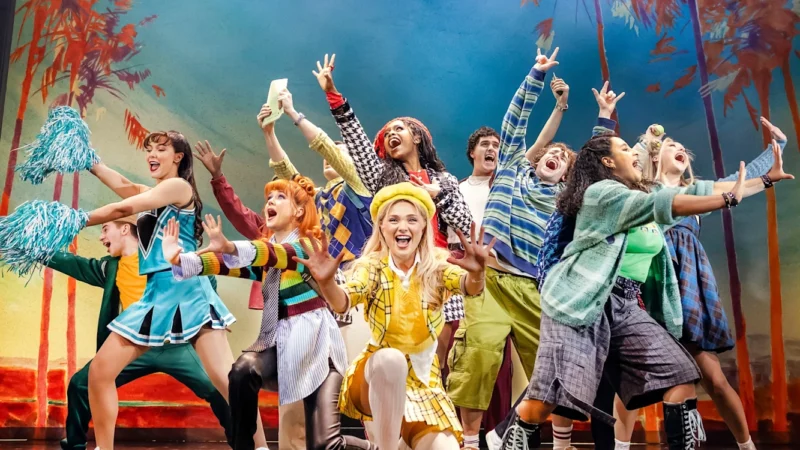‘A shining cast dimmed by technical flaws’
Theatre of Nations continues its culture-spanning mission of touring Russian literature in its original language.
It brought Anton Chekhov’s first full-length play Ivanov to the Barbican Theatre this month, along with a second play centred around Vasiliy Shukshin’s short stories.
Interestingly, the company’s headquarters, the Korsh Theatre in Moscow, is the first place Ivanov was ever performed in 1887.
Despite the historic and linguistically intriguing elements of this piece, I won’t be proclaiming a cheerful ‘Na zdorovie’ just yet.
After manically brushing up on my nonexistent Russian on my way to the theatre, I was very glad to discover there would be subtitles in English. Sadly, these were rather slow and at points completely absent.
Thankfully, considering the strength of the acting this was not such a problem.
Three hours of Russian theatre is not for everyone and I wouldn’t recommend this piece for someone wanting to dip their toes into the world of Chekhov. It’s heavy-going stuff.
Following the rather classic midlife crisis of Ivanov Nikolai, the piece shows the very beginning of the classic Chekhovian style.
Everyone is miserable, inactive, bitter, lazy and lacking self-awareness. You can hear the bells of the Russian revolution tolling in the background as these characters squander money, happiness and hope.
This production is cleverly updated to a modern setting. The down-at-heel family of Ivanov are now office workers, and this new angle brings a topical feel to the piece.
So far so good, although not as complex or meaningful as his later works The Seagull, Three Sisters, and The Cherry Orchard.

The play is not without charm, and charting the blossoming of his writing abilities is a must for any Chekhov enthusiast.
The performances are the real draw of this piece, and what a set they are.
Evgeny Mironov, although tending toward melodrama, gives a passionate and unexpected Ivanov.
Viktor Verzhbitsky’s bitter uncle – there’s always one in every Chekhov play, until Uncle Vanya gives the thwarted uncle his time to shine – is both hilarious and heart-breaking.
Despite the play alienating English speakers through the technical flaws, the cast manage to convey the crux of the tale in all its glorious shades of indolence. Surely that is the most important part of the evening?
Unfortunately not quite. Despite the actors pouring their best into the piece, they are undercut by a series of disjointed creative choices that snatch away moments that should resonate.
Oleg Golovka’s set is overly ambitious for a touring production and the need for a crew to fiddle around and physically move pieces in a grey light produces an uncomfortable laugh from the audience.
Secondly, Timofey Kulyabin’s directing has imaginative flare but lacks an overarching sense of definition. Moments of real beauty are eroded by lazy decisions.
At points the blocking is clever and outside the box, but seconds later simple moments lose their credibility.
Despite creating some beautiful images with an admirable dedication to the Chekhovian obsession with symbolism, something is missing in the overall feeling of the play. The effect is interesting but conflicting.
Seeing Ivanov in its mother tongue is a treat and the sections of singing finally make sense after having to endure many productions’ bad translations. Yet the final wedding scene slips more into farce that realism and it was this feeling that stayed with me into the evening.
As I (and most of the Russian-speaking population of London) left the Barbican, it’s this sense of chaos and ridiculousness that prevails.
Was it intentional? Was it by chance? If the subtitles had managed to catch up, I might be able to tell you.
Ivanov ran from 11-12 October at the Barbican Theatre



